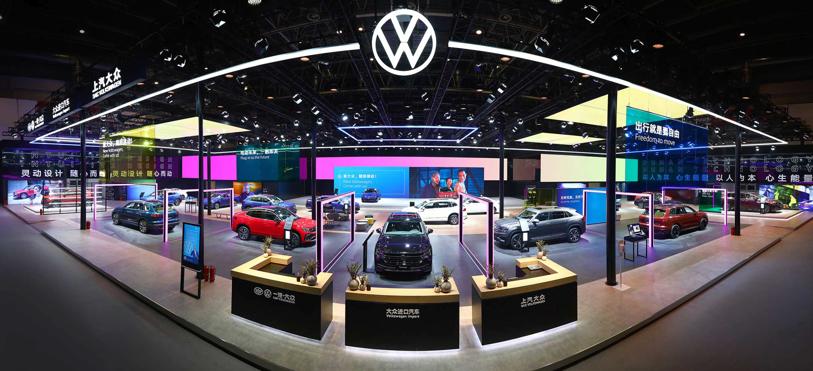
In the development of the global automobile industry, Volkswagen has always occupied an important position. However, the recent closure of Volkswagen's first factory in Germany, like a boulder thrown into a calm lake, has stirred up layers of waves and triggered a profound reflection on the global economic landscape.
As one of the important pillars of modern industry, the development of automobile industry often reflects the trend of a country and even the global economy. Volkswagen's factory closure in Germany is not just a corporate decision adjustment, but an external manifestation of a series of deep-seated economic problems. From an international point of view, there are many issues worth exploring behind this incident.
First, this incident highlights the difficulties faced by traditional manufacturing in the process of global economic transformation. With the rapid development of science and technology, emerging industries such as artificial intelligence, big data, new energy and other fields have risen rapidly, forming a huge impact on the traditional manufacturing industry. As a representative of the traditional automobile manufacturing industry, Volkswagen has to make a difficult transformation in the face of the rise of new energy vehicles and the development of intelligent network technology. However, the transformation does not happen overnight and requires a lot of capital investment, technology research and development and market development. In this process, some traditional factories may be forced to close due to high costs, backward technology and other reasons. This reflects the traditional manufacturing industry in the wave of global economic transformation, if can not keep up with the pace of The Times, it is easy to be eliminated. This phenomenon is not unique, and in many Western countries, traditional manufacturing industries are facing similar difficulties. It also reminds us that the development of the global economy requires continuous innovation and transformation to adapt to new market demands and technological changes.
Secondly, from the point of view of the labor market, the closure of the Volkswagen plant will lead to a large number of workers losing their jobs, placing a heavy burden on the local society. In Western countries, the auto industry is often an important area of employment, and factory closures will cost many workers their livelihoods. This will not only affect their family life, but may also cause social instability. At the same time, it also reflects that in the process of global economic transformation, the adjustment of the labor market is facing a huge challenge. How to provide reemployment training and support for unemployed workers and how to promote the transfer of labor force to new industries are issues that governments need to seriously consider.
In addition, the closure of the Volkswagen plant has also had an impact on the global supply chain. The automotive industry is a highly complex industrial chain involving a large number of suppliers and partners. The closure of the factory may lead to supply chain disruption, affecting the production and operation of upstream and downstream enterprises. It also reminds us that in the context of global economic integration, countries are increasingly connected economically, and the decisions of any one country or company can have a ripple effect on the global supply chain. Therefore, strengthening the cooperation of the global supply chain and improving the stability and flexibility of the supply chain are important guarantees for the stable development of the global economy.
Volkswagen's first factory closure in Germany may seem like an isolated act of a single company, but from an international standpoint, it reflects many problems in the global economic landscape. The transformation dilemma of traditional manufacturing industry, the negative impact of trade protectionism, the adjustment challenge of the labor market and the stability of the global supply chain all require us to seriously consider and respond to. In today's increasingly interconnected global economy, countries should abandon trade protectionism, strengthen cooperation and innovation, and jointly promote the stable development of the global economy. Only in this way can we find a path of sustainable development in the face of the changing global economy and create a better future for mankind.

According to Bloomberg, a recent in-depth interview with Michael Dehal, senior portfolio manager at Raymond James' Dehal Investment Partnership, was released, focusing on the economic development prospects and potential risks of Canada and the United States in 2026.
According to Bloomberg, a recent in-depth interview with Mi…
TikTok Shop, the global e-commerce platform under ByteDance…
As a severe flu outbreak sweeps across the United States, w…
Recently, US Treasury Secretary Mnuchin publicly stated tha…
At the dawn of 2026, the United States launched a military …
From the stiff step when it first debuted in 2022 to demons…